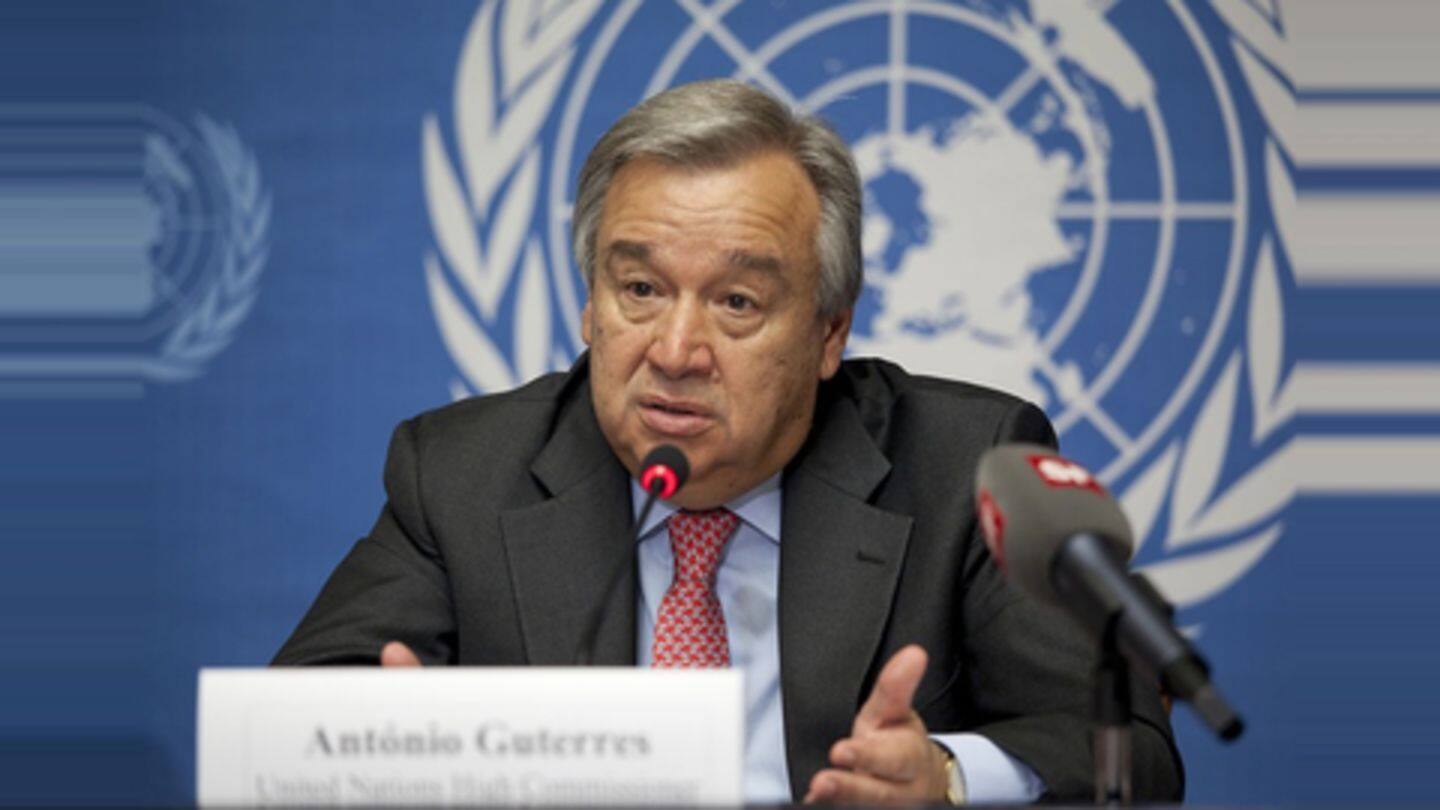
UN urges Bangladesh to relocate 1.5L Rohingya-refugees ahead of rains
What's the story
About 1.5 lakh Rohingya refugees, who fled violence in Myanmar to settle in crowded camps in Bangladesh's Cox's Bazar, are living in flood-prone areas and must be relocated ahead of the coming rainy season, UN Secretary-General Antonio Guterres said.
"We believe 150,000 people are in areas that are flood-prone or can be negatively impacted by the monsoon in a dangerous way for the people."
Higher areas
'Higher areas the best place for this kind of relocation'
Guterres said he had discused the crisis with the Bangladesh government.
"The best way to relocate them is in higher areas that can be outside...treated to accommodate this group that, of course, is extremely vulnerable to the monsoon," he said.
About appointing a special adviser on Myanmar, Guterres said they have been conducting "a number of consultations."
"I hope (the appointment) will come soon."
Funding
Bangladesh's health sector is grossly underfunded
Meanwhile, the World Health Organization appealed to the international community to contribute generously to enable appropriate and timely health services to the Rohingyas in Cox's Bazar, now facing grave risks to their lives and health in view of the coming rainy season.
WHO said the country's health sector is grossly underfunded to meet the needs of 1.3 million Rohingyas in Cox's Bazar.
Cyclone prone area
Rohingya population are settled in area that is cyclone prone
"The Rohingya population are settled in an area that is prone to cyclone and a terrain that would be flooded as soon as rains begin. The risk of outbreak of life-threatening water and vector-borne diseases under such conditions is huge," Singh said.
Coordinating the work of over a 100 partners on the ground along with the Health Ministry, WHO has facilitated a contingency plan.
Contingency plan
WHO's contingency plan aims at the continuity of health services
The contingency plan for the rainy season aims at the continuity of health services during rains and floods to minimize the risk of disease and deaths among the affected population.
Since August 2017, nearly 700,000 minority Muslim Rohingyas have fled violence in Myanmar across the border into Bangaldesh's Cox's Bazar, joining several hundred thousand more that were already settled there in overcrowded camps.